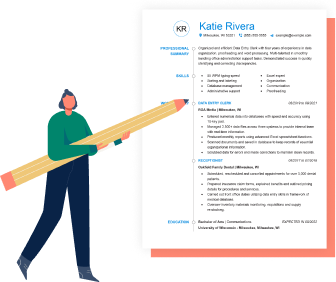Free academic CV sample
Create your academic CV with our free template, designed to meet UK standards. Whether this is your first CV or you’re updating your academic curriculum vitae, this easy-to-use format ensures your qualifications, experience, and skills are presented clearly and professionally. Customise it to create an academic CV that stands out to universities and recruiters.
Mark Rice
52 Park Row
Edinburgh, EH2 0YR
07912 345678
mark.rice@example.co.uk
Personal Statement
A dedicated and passionate psychology professional with a deep interest in teaching and research. With a background in cognitive psychology, extensive experience as a teaching assistant, and several peer-reviewed publications, I aim to foster a positive and engaging learning environment. My expertise spans research methodology, behavioural psychology, and psychological assessment, and I am committed to contributing to both the academic community and the development of students at higher education institutions.
Education
PhD in Psychology
University of Leeds | September 2017 – September 2021
- Thesis: Cognitive Biases in Decision-Making: An Exploration of the Influence of Emotional States on Judgement and Risk Perception
- Supervisor: Dr. John Smith
- Key Modules: Advanced Research Methods, Cognitive Neuroscience, Psychometrics
Master of Science in Psychology (MSc)
University of Manchester | September 2015 – September 2017
- Dissertation: The Role of Memory and Attention in Children’s Social Development
- Key Modules: Child Development, Neuropsychology, Research Design
Bachelor of Science in Psychology (BSc)
University of Birmingham | September 2012 – June 2015
- 2:1 Honours
- Key Modules: Social Psychology, Cognitive Psychology, Research Methods
Research Experience
Research Assistant
University of Leeds | October 2019 – June 2021
- Collaborated with Dr. John Smith in a study on cognitive biases and decision-making in high-stakes situations.
- Conducted data collection analysis using SPSS and literature reviews.
- Co-authored a paper published in The Journal of Cognitive Psychology.
Research Assistant
University of Manchester | September 2016 – June 2017
- Assisted in the development of experimental designs for memory studies in young adults.
- Managed participant recruitment, data collection, and statistical analysis.
- Contributed to the development of a conference presentation for the British Psychological Society (BPS).
Teaching Experience
Teaching Assistant (TA)
University of Leeds | September 2018 – June 2021
- Led weekly seminars in cognitive psychology and research methods for undergraduate students.
- Assisted in grading and providing feedback on coursework, essays, and presentations.
- Supported faculty members during laboratory sessions and supervised practical assessments.
- Organised additional study sessions to support students’ academic development.
Teaching Assistant (TA)
University of Manchester | September 2015 – June 2017
- Assisted in introductory psychology courses, facilitating group discussions and lab work.
- Developed and maintained learning resources for first-year students.
- Participated in curriculum design meetings and reviewed course content to ensure it met the learning objectives.
Publications
- Smith, J., & Mark Rice. (2021). Cognitive biases in decision-making: Emotional states and their impact on risk perception. Journal of Cognitive Psychology, 45(3), 217-230.
- Mark Rice, & Thompson, R. (2017). The role of memory in social development in children: A longitudinal study. Developmental Psychology, 53(6), 1105-1119.
Conference Presentations
“The Impact of Emotional States on Risk Perception in Decision-Making”
British Psychological Society Annual Conference | March 2021
“Memory and Attention in Children’s Social Development”
International Conference on Child Development | July 2017
Professional Affiliations
- Member of the British Psychological Society (BPS)
- Member of the Society for Research in Child Development (SRCD)
- Registered with the Health and Care Professions Council (HCPC)
Skills
- Advanced knowledge of research methods and statistical analysis (SPSS, R)
- Expertise in cognitive psychology and developmental psychology
- Excellent written and verbal communication skills
- Proficient in creating and delivering engaging lectures and seminars
- Skilled in curriculum design and educational technology (Moodle, PowerPoint, Zoom)
- Strong ability to mentor and support students in academic development
- Ability to write research papers and reports for academic publication
Awards & Achievements
- Best Paper Award, British Psychological Society Annual Conference (2021)
- Dean’s List, University of Leeds (2019-2021)
- Excellence in Teaching Award, University of Manchester (2017)
References
Available upon request.








